Salt making in Binh Dai district. Photo: Truong Minh Chau
The day I packed my bags and set off to receive my assignment. Going to a sunny, windy, and desolate land of mangrove forests. I was from a coastal district of Binh Dai in Ben Tre province. But it was only halfway up, mainly farming and growing coconuts. It was the first time in my life that I had been to a salty, thorny country. I had briefly read the notice that the meeting place to receive my assignment was the People's Committee of Thanh Phuoc commune. The road to the sea was really difficult. The wind was against me, the road was bad, both sides of the alum fields were barren, and wild grass grew wildly. After about an hour, we were there. The headquarters of the People's Committee of Thanh Phuoc commune was a fairly large thatched house, with sparse tables and chairs. The hall had rows of fixed benches, and long planks placed across them as chairs. My mood at that time was extremely confused. I didn't know where to live and teach? The struggle of confusion, mixed with fear. And I burst into tears, no one understood what was happening. Several friends came to comfort and encourage me to overcome the moment of temporary psychological shock.
I was assigned to teach at the school in Hamlet 4. This was the main school of the commune. The problem was more difficult, not knowing where the teachers would stay? They could only stay temporarily in people's houses, at that time the commune did not have dormitories for teachers. The policy of the People's Committee of Thanh Phuoc commune was to choose well -off families for us to stay. The place I stayed was Uncle Hai's house, located about a kilometer from the school. The house was spacious, the family lived together with four people: Uncle Hai, Aunt Hai, Ms. Ha and Hien. As for Mr. Tien, the son of the two uncles, had a wife and lived separately, built a house about 50m behind, with his wife and two small children. At first, it was considered that "All beginnings are difficult" went quite smoothly. A week later, I went to the school to receive the class. The principal assigned me to teach Grade 3, after receiving the assignment, I left. The next morning I went to teach. Alas, it was beyond my imagination and thoughts for so long. The class had thirty students, 21 boys, 9 girls. The uniforms were colorful: long pants, shorts, t-shirts, short shirts... all available. Most notably, most of them went barefoot. I asked why? They said they weren't used to wearing sandals. Most of their parents worked in salt and aquaculture, so they went barefoot. The luckiest thing was that where I was staying, there was Ms. Suong, Mr. Tien's wife, who taught at the same school. Whenever I had any difficulties, they would help me wholeheartedly. Everyone in the family called me "Miss Moi". That brand name existed until the day I left. I gradually got used to the current life, got rid of all the free habits of my youth. I started to integrate into the new life to grow up. In my free time, I often went to Ms. Suong's house to chat. She said that Mr. Tien used to be a very good student. He went to My Tho to study, passed the double baccalaureate. Then he went straight to Saigon to study at the University of Science for one or two years, then quit and came back to help his family with the salt industry. He stayed in the salt fields all week, sometimes only coming back once every half month. Or only when something special happened. He was always working hard outside. Uncle Hai's family had about fifty hectares of salt fields located next to Khem Lon. The seawater here was abundant, convenient for salt making. Mr. Tien built a small hut with a roof made of water coconut leaves, the pillars, beams, and rafters were all made of straight mangrove trunks. The main part of the hut was about 20 square meters wide , with a kitchen for cooking and a bathroom in the back. On Saturdays and Sundays when I had nothing to do with teaching, I often followed Ms. Suong here to visit him. Mainly to supply rice, vegetables, fruits, and some other miscellaneous items.
The salt making job was extremely hard, his body was dry, his skin couldn't be any darker. Only his teeth were as white as salt. Sister Suong and I helped clean, cook, and do some chores. Two medium-sized cowhide jars were used to hold water. Fresh water here was very scarce, the water was changed once a week. Fresh water was mainly used for cooking rice and rinsing the mouth. As for bathing, we only had to pour water after bathing. Under the scorching sun, barefoot, wearing a torn conical hat with half of the brim barely covering the head. The stains of salt seemed to want to penetrate the fate of this small salt worker. In the afternoon, after finishing eating, I sat and listened to him tell stories. His voice was slow, distant, and simple like that of a coastal person. This salt making profession had been passed down from his great-grandfather until now. He was the one responsible for continuing the tradition. His family was originally from Quang Ngai , where there was a long-standing Sa Huynh salt village. After the journey to the South by sampan, it must have been four or five generations. I sat there engrossed listening to him tell me about each stage of salt making. It was so hard and arduous! Each salt field was usually 30-40 silkworms long and about 7-8 silkworms wide. The ground was compacted and hard, and people used rollers to roll it back and forth many times until it was flat. The surface of the salt field was inclined so that when water was brought in and drained, it was easy. The water pumped into the field went through 5-6 stages before being retained to extract the salt. Normally, it took about 10-15 days to harvest the salt. Needless to say, it was hard work. But it was so much fun. Old and young, men and women all went to the salt fields. Some people raked and shoveled quickly. Some women used wheelbarrows to push the salt up to the thatched houses on the dike. Young men scooped it into buckets and carried it on their shoulders to pile it up into towering piles. Each pile was about a few hundred bushels. When finished, cover them with water coconut leaves, waiting for the day to be transported to market. On the other side, several rows of salt fields have just been harvested. The children use them as a soccer field. The mighty army is clearly divided into two teams, with referees. One team wears colorful shorts and shirts, the other team is shirtless for easy distinction. The referee's whistle blows continuously, reminding the players to play seriously, follow the rules, and not to violate the rules. The sound echoes throughout the sky. Every year, his family harvests several hundred bushels of salt, but the price of salt fluctuates erratically. The life of salt farmers also fluctuates. Then he laughs and makes a poem: "Grandma said that when she was a girl, the price of salt in our hometown fluctuated precariously."
After the salt season, everything is the same. Because everything is converted from salt into money. Money for hiring workers, food, children's education, family living expenses, money for weddings, funerals, death anniversaries... Everything comes from salt. After each salt season, he has a few weeks off to rest and he renovates it into an extensive shrimp farm. His heart is also at ease with each full moon and thirty-day tide. Harvesting fish and shrimp also makes ends meet. With a little extra, he buys clothes for the children. He reaches for the teapot, pours it into a cup and sips. Life is like that, "Heaven creates elephants, creates grass", the cycle of heaven and earth. Just pick up sparsely and regularly, the love is eternal like the vast ocean and sky. Oh, I forgot! Salt is also diverse, there are many types: pink salt, black salt from the Himalayas. Salt mines were formed millions of years ago. Smoked salt pellets, bamboo salt in Korea... refined salt, mineral salt, foam salt, medicinal salt... countless. He also wrote a poem that he thought was quite interesting: “Pink salt, bamboo salt, black salt. Not as good as the natural white salt of my hometown.” Then he let out a hearty laugh. The Thanh Phuoc night wind blew into the late sky, slightly chilly. The salt workers rubbed their feet together, climbed into bed and slept soundly. I doubted that I would bring their dreams with me to the town tomorrow.
In 1994, I left this place after ten years of teaching. The future prospects were vague somewhere, not clearly defined. But I believed that the younger generation would have faith and take steady steps. To change the life of their homeland. Last year, on a sightseeing trip. The "Forest Keeper" tourist area in Thanh Phuoc. For me, everything here had changed unusually after thirty years. The wide, paved road stretched far and wide. Houses on both sides of the road were built close together. The old rice fields were now facades, streets, with many magnificent villas of modern architecture in all colors. I was surprised, I was unfamiliar. And I was happy with the changes of this land. My heart was filled with an indescribable excitement, my mind was unusually elated! And I remembered the old days, remembered Uncle Hai, remembered Mr. Tien's family and remembered the acquaintances of the old days. I wandered around, went to the corner of De Dong Street, and asked about Uncle Hai and him. I called a motorbike taxi driver to take me to visit his family, a few kilometers away. The noon sun was hot, but the wind from the sea kept blowing cool and refreshing. The motorbike taxi driver stopped and pointed to a two-story house, surrounded by a fence and yard. Funny, people in the countryside often paint their houses in bright colors. It was as impressive as the decorative flower gardens in city parks. In front of me was a purple house with a white bougainvillea trellis hanging over the fence. I stopped for a moment and then called out. A middle-aged man with gray hair came out and asked: Who are you looking for? Yes! I'm looking for Mr. Tien and Ms. Suong's house. He looked at me with surprise and then slowly asked more. Who are you? Yes, I'm the person who stayed at Uncle Hai's house forty years ago. “New teacher!” She exclaimed loudly, then quickly opened the gate. Come in, we’ll talk later. He called out loudly from the side of the house. Suong, Suong, there’s a guest… A distinguished guest. She appeared, it was indeed Ms. Suong. She looked no different from before, short and stocky, with more skin and flesh than before. I couldn’t drink tea, so she reached for a bottle of water from the fridge and offered it to me.
The conversation continued to flow. Everything was the past... the past. The past was poor, the past was miserable, the past was extremely deprived, the past was a distant time. The couple's two children were over forty. Duc now lives in Ho Chi Minh City, both of them are doctors. They have a private practice, and they come back to visit from time to time. Hanh married a man in Binh Dai town, both of them are teachers. They bring their grandchildren back to visit on the weekends, regularly. From then until now. Except for special cases. When I asked about Uncle Hai, he said he had passed away a few years ago. I was filled with sadness and nostalgia, nostalgia for a place of memories from the beginning. Seeing me sad, Tien loudly interrupted my train of thought. Your life, it just flows, flows by like a destiny that makes people feel disappointed, troubled, then silently accept. To survive and develop. Me too, if only my studies had not been unfinished back then, my life would be different now. Do you know if you will meet my sister Suong? Fate closes this door, but opens another door for us. The foundation and the source of happiness, are not like now. In short, my life started with salt, growing up living and dying with salt. Salt is more precious than gold. My brother and sister's salt production facility is still stable. Dozens of workers always accompany the family. Duc said that in about ten years he will come back to take over this facility, I also try to wait, what can I do? I hope that one day not far away he will return. Return to protect the "heritage" that our ancestors left behind, as if it was predetermined from long ago. I felt my eyes sting, from generation to generation they have always had to make trade-offs and sacrifices to fulfill their wishes for the salt making profession. Sister Suong excitedly nudged my hand, and she took me to visit the old school. About five minutes later, we arrived, a spacious and spacious school appeared before our eyes. The students were having recess, creating a joyful and bustling atmosphere. Neat and beautiful uniforms. The school is named after Tra Thi Cut, a daughter of Thanh Phuoc. The female hero of the armed forces sacrificed here. The school was inaugurated on March 22, 2022, sponsored by the US Indo-Pacific Command. My heart is filled with happiness. A bright future is opening up to welcome you. Another good news on October 2, 2024. The province organized the groundbreaking ceremony for the Ba Lai 8 bridge connecting Ba Tri - Binh Dai on the coastal route of Tien Giang - Ben Tre - Tra Vinh and the provinces of the Mekong Delta. It is expected that this route will pass through Thanh Phuoc commune, his hometown. An unimaginable joy. Can anyone believe it? When a national highway runs through a land full of promise. The eternal dream has been lit up by the great ideas of modern people in the 21st century. The policy of the Provincial Party Committee is to develop to the East. Like a new wind blowing up the eternal aspirations. The light of faith will spread throughout the delta. Not far away, one day soon this desolate land will be bustling with prosperity. The fairy tales of human life pass by silently, fragile as the silk thread of heaven tied to the fate of people. Countless streams of thoughts are piled up from generation to generation. The salty smell has penetrated deep into the soul. Quietly and then caressingly wavering deeply. Honestly, I only dare to borrow five words, the lyrics of a song to give strength to this article. Gratitude is not enough "How deep is love, how heavy is duty". For a profession that should have been honored long ago. For those who go far away like me, like you and like many others. Anyone who goes far away will return. Return to their homeland, return to the white salt fields. To shout and cherish the loyal people of the coastal region. Saying goodbye to me, Mr. Tien also said to me "New teacher, know how to come back to visit the people, good morning". Yes! I'm going home. How can I forget this place? I come back to lead the memory, to "Find the echoes of the waves" of love. The color of the last sunlight of the day softens, the sunset bends close to people's faces. Looking towards the salt fields, my heart is filled with an indescribable feeling. Raising my hand to wave away the commotion that is anxiously waiting, I believe this place can!
Song Pho
Source: https://baodongkhoi.vn/noi-long-ta-nghia-nang-tinh-sau-30062025-a148927.html



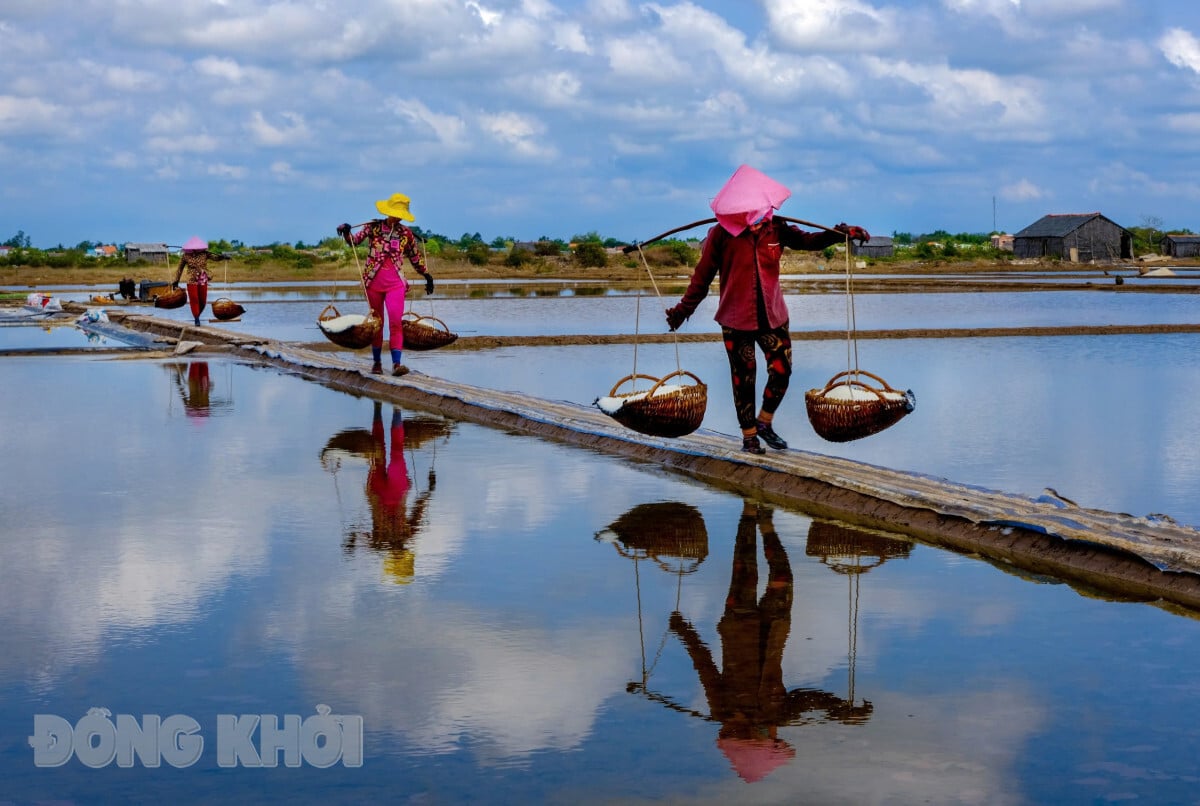



![[Photo] General Secretary To Lam attends the 80th anniversary of Vietnam's diplomacy](https://vphoto.vietnam.vn/thumb/1200x675/vietnam/resource/IMAGE/2025/8/25/3dc715efdbf74937b6fe8072bac5cb30)


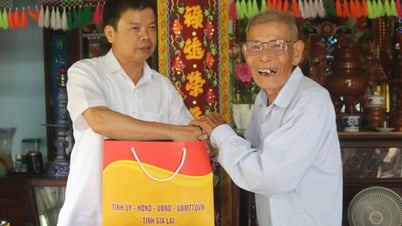

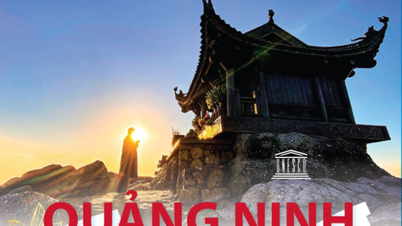

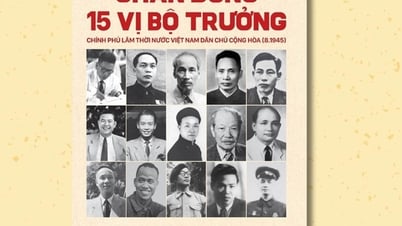



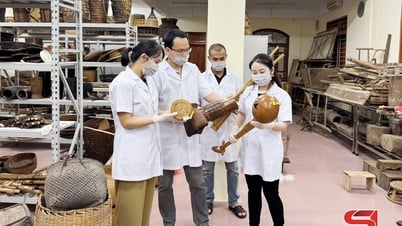





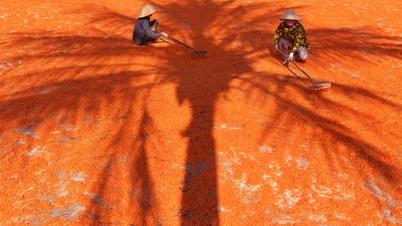
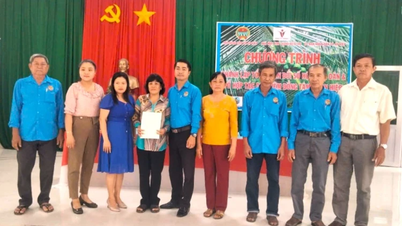
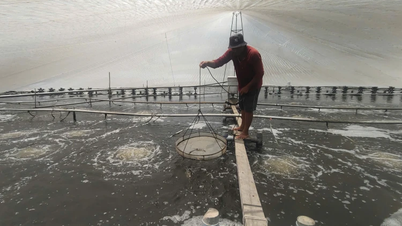
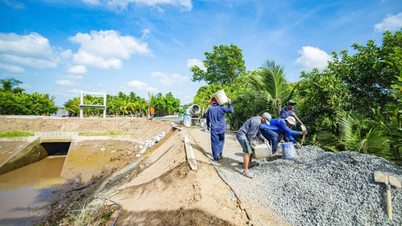
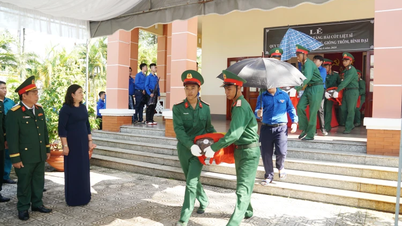




















































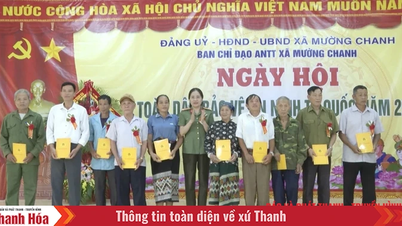

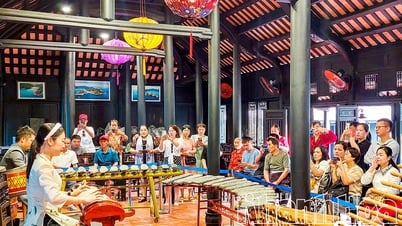
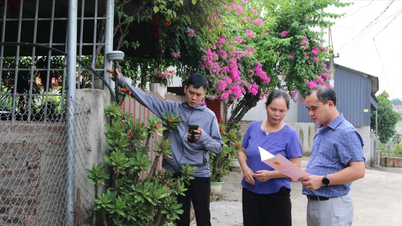

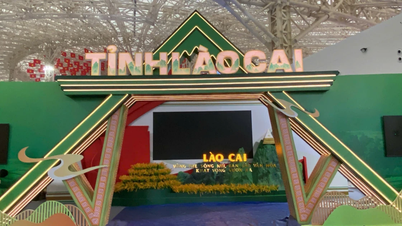
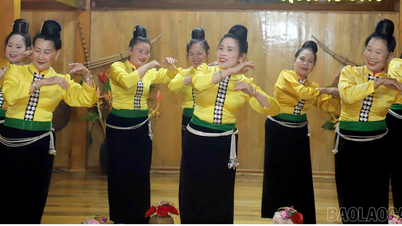
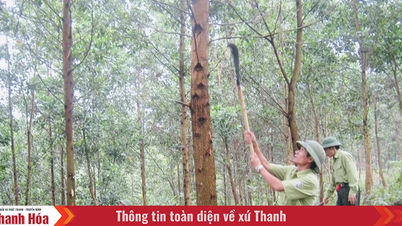















Comment (0)